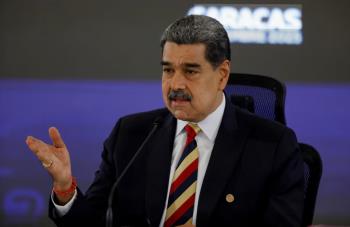Alwaght- A third Palestinian Intifada (uprising) has been in the horizon for years. For the Israelis, the recent developments and outrage across the West Bank and al-Quds (Jerusalem) have shown that a third Palestinian Intifada is not merely a mirage.
If an intifada has already begun it certainly does not resemble the first and the second one.
Recent developments such as the failed so-called peace talks, resistance acts, counter-resistance attacks, "price-tag" attacks, clashes at al-Aqsa mosque, and the continuing illegal settlement expansion have reawakened a dormant but ever-existing Palestinian anger.
Ha'aretz columnist Anshel Pfeffer attributed the rising terrorist attacks against Palestinians as one of the causes of an intifada.
“Another characteristic of the next (or current) intifada could certainly be the increasing prevalence of Jewish ‘price tag’ operations, such as the arson attack that murdered three members of the Dawabsheh family in the West Bank village of Duma about two months ago.”
When 19-year-old law student Muhamad Halabi proclaimed “the third intifada has begun” just hours before he carried out an operation against Israeli settlers, he unleashed a spate of Palestinian attacks, days after the 15th anniversary of the Second Intifada.
While Abbas warned Palestinians against “militarizing” their confrontations, Israeli Prime Minister Benjamin Netanyahu "authorized the use of live fire against stone-throwers, called for long prison terms for them and ordered the demolition of homes of Palestinians killers of Israelis."
An opinion poll published last month by the Palestinian Centre for Policy and Research revealed that fifty-seven per cent of Palestinians support a return to armed struggle under the umbrella of resistance.
For many, the situation remains unclear. Observers are confused whether an intifada is on its way or it has already arrived.
Pfeffer wrote: “When the spikes come fast and furious, and so close to each other that the lulls in between are barely noticeable, perhaps it’s time to acknowledge that the shift has already happened and maybe the third intifada has already been going on for a year or so?”
"Whether a full-fledged third intifada is about to explode remains to be seen. What is clear, however, is that Israel’s continued military occupation of Palestinian land, and the denial of rights to the Palestinians living there, cannot remain the status quo and hold profound ramifications for both Palestinians and Israelis," argued Zeina Azzam in an opinion piece on Al-Jazeera.
Background
In 1987, the First Intifada broke out against the Israeli occupation across the West Bank and the Gaza Strip. The immediate reason that sparked the uprising was the killing of four Palestinians by an Israeli truck in the Jabalia refugee camp. Following the incident, a mass protest movement arose. Armed only with stones and shielded with their own chests, Palestinians began a civil disobedience movement with boycotts, general strikes, barricading, and rock-throwing. During the six year intifada, the Israeli regime killed more than 1,000 Palestinians, arrested tens of thousands, and razed the homes of more than 2,000 people. It ended with the Oslo accords in 1993.
The second Intifada was awakened in 2000. Frustration over the failure of years of negotiations to form a Palestinian state was already boiling when then leader of the Likud Party Ariel Sharon stormed the compound that houses the holy al-Aqsa mosque sparking indignation among Palestinians. This led to an armed resistance movement that was named after al-Aqsa. The four-year intifada that ended in 2005 claimed the lives of more than 4,000 Palestinians.
On September 30, 2001 the video of 12-year old Palestinian Muhammad Durrah being killed amid a gun battle brought the world to tears and cast light over the high number of children killed by the Israeli occupation forces.
In 2005, just days before the Sharam el-Sheikh summit, PA President Mahmoud Abbas vowed that this would mark the end of the uprising following the death of Palestinian leader Yasser Arafat.
High Cost
In an article titled “A Third Intifada Will Cost Israel Much more Than the First Two" published on Ha'aretz, Israeli analyst David Rosenberg predicted that another Palestinian uprising would prove to be costly to Tel Aviv.
"The danger for Israel is political. The Israel-Palestine conflict will return to the spotlight, animating the boycott movement and straining relations with the U.S. and European Union," he explained.
During the first intifada, the impact of the harrowing news and images of the Israeli brutality against the Palestinians were restricted in newspapers and TV channels. With the use of the internet, the flow of information became more intense during the second intifada. This is why a third one worries the Israelis.
Rosenberg expressed concern about the immediate and unrestricted social media through which the policies of the Israeli regime would be reflected to the outside world and help shape an international position toward the conflict.
"If the third intifada breaks out, the media element will be exponentially more powerful than it was in the Second. Smartphones produce myriad images that go flying across the media and social media in an instant. It’s doubtful that more than a tiny percentage can or will show Israel in a favorable light," he added.
There is also an economic price the Israelis would have to pay. As a result of an uprising, tourism will dwindle, the technology sector is expected to see a setback, and foreign investment will shrink.
“For the first time, the economy may end up paying the cost of Israel’s failure to come to an accommodation with the Palestinians,” Rosenberg concluded.
In 2014, retaliatory operations against the Israelis surged with movements calling for a "day of rage" urging Palestinians to rise up in defense of the holy al-Aqsa mosque, one of Islam's holiest sites which continues to be violated by the Zionist regime. Clashes and protests increased and were called the features of a "silent intifada." This year, the silent intifada raised its voice and is being heard, loud and clear.
Fatima Hanan Elreda


























